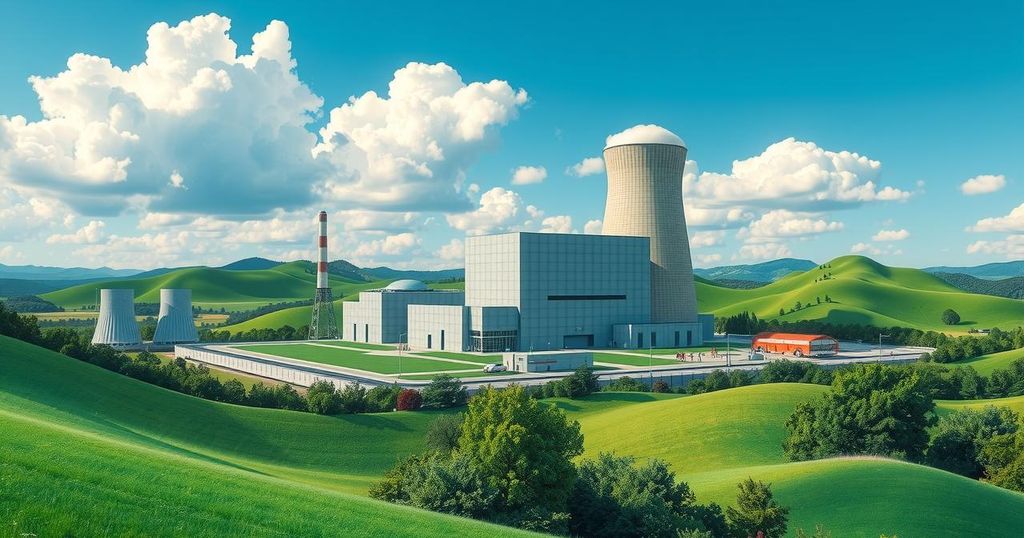Raul Lycurgo of Eletronuclear emphasizes the economic benefits of completing the Angra 3 nuclear unit, asserting it would generate jobs, stimulate growth, and provide sustainable energy. The project has faced historical setbacks but could enhance Brazil’s electricity supply and economic landscape if completed. Discussions within the National Energy Policy Council are crucial for the project’s future.
The president of Eletronuclear, Raul Lycurgo, advocates for the significant economic benefits that completing the Angra 3 nuclear power unit would provide to Brazil as discussions are set to occur in the National Energy Policy Council. Currently, Brazil operates two reactors, Angra 1 and Angra 2, which collectively produce approximately 3% of the nation’s electricity. The Angra 3 project has struggled since its inception in 1984, enduring multiple halts due to a variety of issues, including construction scandals and regulatory disputes. The unit, which is designed to host a Siemens/KWU reactor with a capacity of 1405 MW, is currently 65% constructed but has faced delays as recently as April 2023 due to disagreements over environmental impacts and local agreements.
In a report to Eletronuclear’s website, Lycurgo emphasizes that the project’s impact extends beyond mere energy production, asserting that it could drive social development, create job opportunities, and stimulate broader economic growth. Citing research from the Getúlio Vargas Foundation, he notes that each dollar invested in nuclear energy can yield up to two dollars in gross domestic product. During the construction phase, it is estimated that Angra 3 could generate approximately 7,000 direct jobs and tens of thousands of indirect jobs, positively affecting regions throughout Brazil.
Lycurgo further indicates that resuming the project could result in a competitive energy tariff of approximately BRL 653.31 (USD 114) per megawatt-hour, lower than various thermal plants in Brazil. Nuclear energy’s consistent and sustainable output would enhance electrical system stability, reducing reliance on the more costly fossil-fuel-based thermal power plants. Consequently, he argues that completing this project represents a hallmark of Brazil’s development not only in energy infrastructure but as a pivotal force for economic and social advancement. A decision regarding the project was slated for the CNPE’s recent assembly on Tuesday; however, it has since been postponed to future discussions.
In conclusion, Raul Lycurgo’s insights highlight the multifaceted benefits of completing the Angra 3 project for Brazil, encompassing job creation, economic stimulation, and energy security. The project stands not only as a vital contributor to the country’s electricity generation but also as a critical milestone for Brazil’s sustainable development and commitment to innovative solutions. The ongoing deliberations highlight the importance of government decisions in shaping the future of Brazil’s energy landscape.
Original Source: www.world-nuclear-news.org






